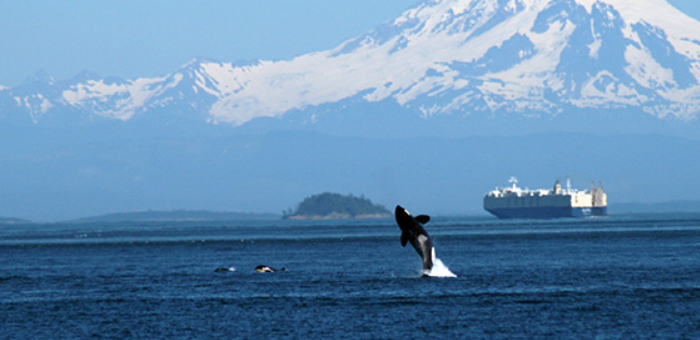The B.C. government will continue expanding its ferry routes, despite National Energy Board’s statement that specifically BC Ferries generate ship noise that threatens the endangered southern resident killer whales.
Specifically, the National Energy Board proposes measures and action in favor of noise reduction for the BC government’s ferry fleet, aiming to help the impact on the endangered whales of increased oil tanker traffic associated with the Trans Mountain pipeline expansion.
However, BC government reported that it’s more important to connect coastal communities than shipping more Alberta oil through the Salish Sea.
B.C. Environment Minister George Heyman commented
Transportation for British Columbian communities is paramount.
In addition, the BC government is opposed to the Trans Mountain pipeline project, highlighting that the possibility of an oil spill accident is high, during the transfer operations and could lead to serious effects for the whales and generally for the marine environment.
Yet, NEB argues that BC ferry service is a major factor of noise pollution, and it already threatens the whale population.
In general, the southern killer whales (SRKW) are being threatened because of starvation, pollution and underwater noise from ships. The NEB, conducted a research that estimated that the whales lose approximately five hours of foraging time daily because of marine noise, which mostly occurs from passenger ferries, but also from tug boats and whale watching vessels.
In light of this evidence, the federal government paused the construction of the pipeline the previous summer and set up the reconsideration hearing after the courts found that the original pipeline approval process was flawed.
Also, NEB found out that the marine shipping related to the pipeline expansion has a high possibility of causing major environmental effects on the 74 remaining members of the SRKW and on the Indigenous cultural values that are linked to the whale population. However, it recommended that Canada proceed with the project, with mitigation efforts to offset the impact.
BC Ferries reported that Mr Heyman is looking for solutions and working on mitigating the impact on the whales.
Although there is a plan to reduce underwater noise, BC ferries alerts that the change will be slow.
As the company stated
Each new class of ship we build is generally quieter than the ships before it. This is going to be a long process. We build our ships to operate for decades, more than 50 years in some cases. New, quieter ships will therefore arrive gradually in the Salish Sea.
NEB reported that Washington ferries, that operates a large fleet, has found out ways to reduce ship noise. Yet, BC Ferries says it cannot retrofit current vessels, as it is not feasible to change out the propellers that are responsible for 90% of the noise.
Concluding, the Pacific Whale Watch Association hasn’t given any statement, but in its submission to the panel, it rejected some of the measures proposed by Washington state to reduce the impact on whales. Instead, the industry proposed a plan to reduce the acoustic footprint from vessels in the vicinity of SRKWs, and a permit system to cap the industry.






























































